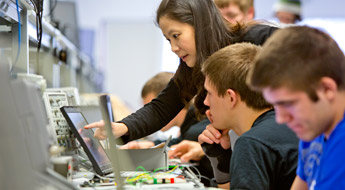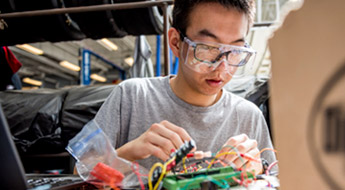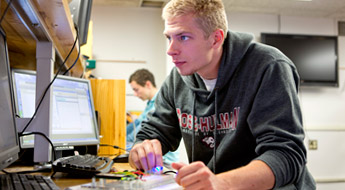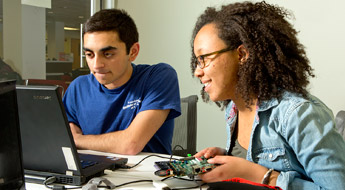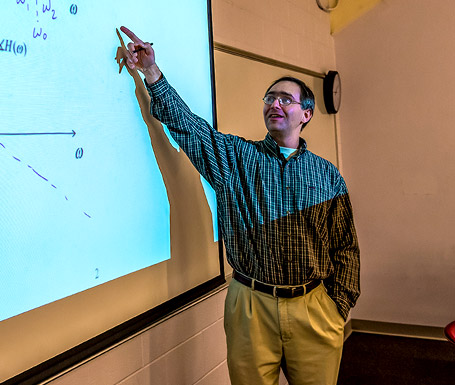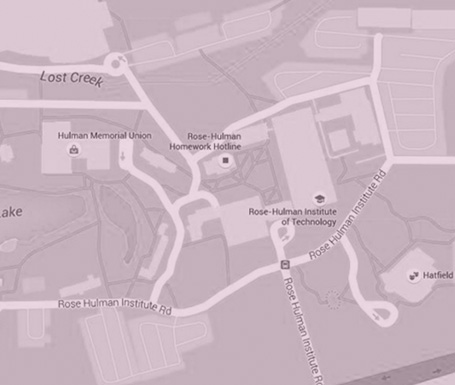The Department of Electrical and Computer Engineering has a long and distinguished tradition of emphasizing hands-on learning with individual attention. Rigorous laboratory experiences have been designed to help you discover and understand the laws, principles, and concepts of science, engineering, and mathematics.
We have nine different instructional laboratories. And we also use "lab in a box" systems such as the Digilent Nexyx 3 FPGA board, the Digilent Electronics Explorer board, and National Instruments MyDAQ board, which can connect to a laptop, allowing labs to be done anywhere.
View our laboratories and equipment below.

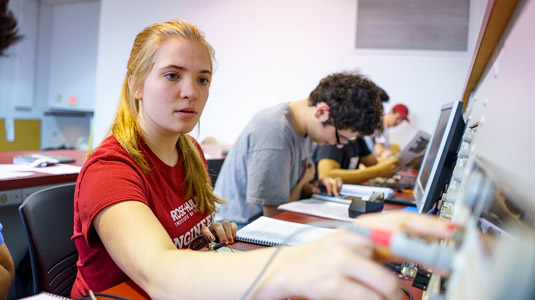
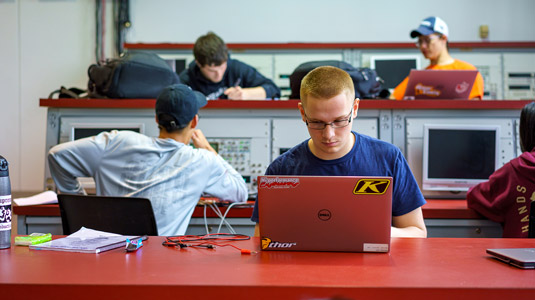
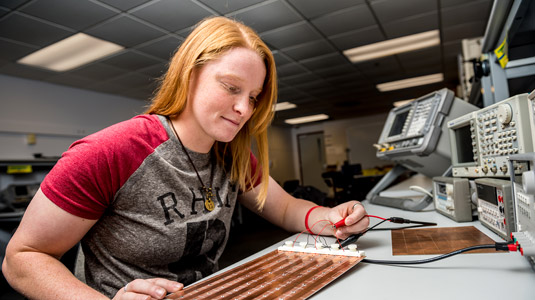
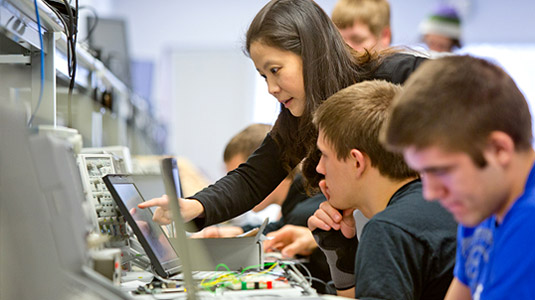
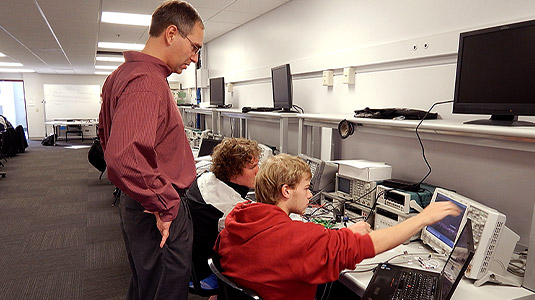
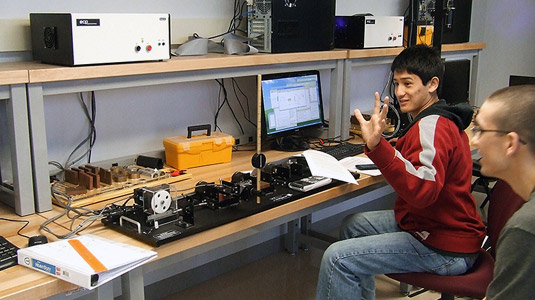
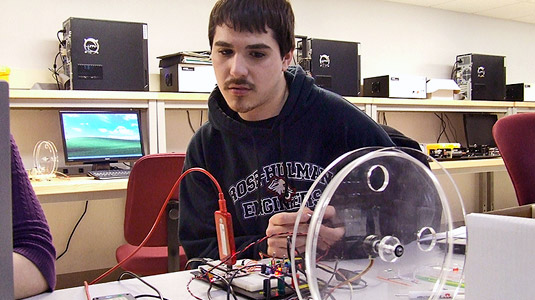
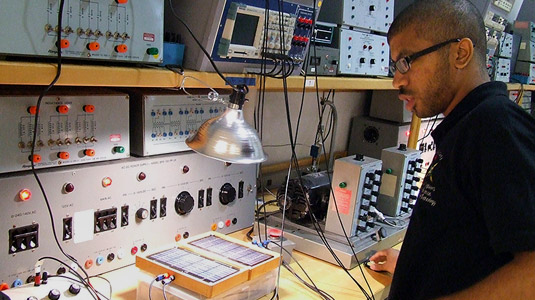
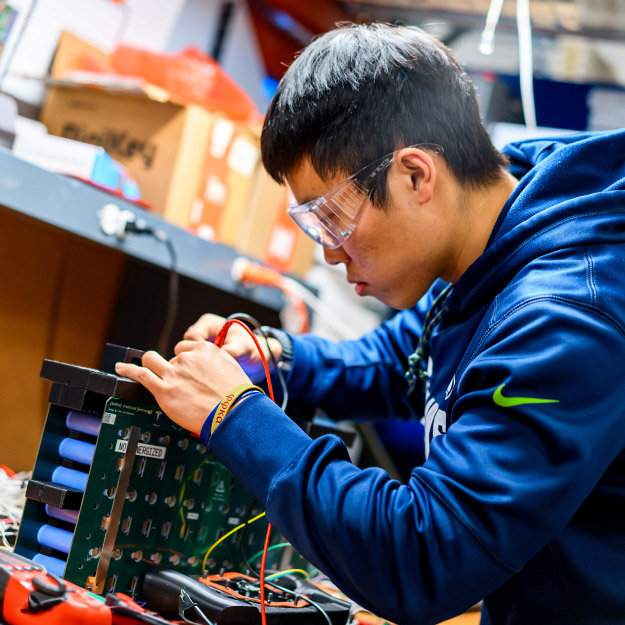

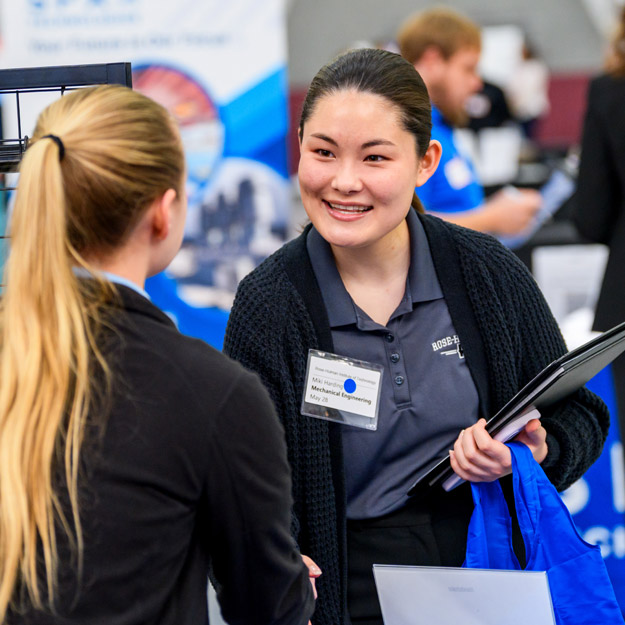
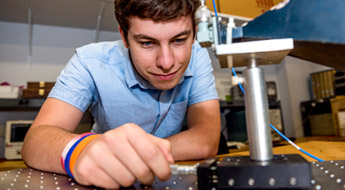
 Have you ever wondered how your cell phone works? Have you had an MRI or CT scan and wondered how that works? Are you curious about where your electricity comes from or how to create alternative energy? How does YouTube handle thousands of uploads every minute? How does a hoverboard keep you upright? Will electric cars replace the internal combustion engine? If you've ever asked these or similar questions, you might want to be an electrical engineer!
Have you ever wondered how your cell phone works? Have you had an MRI or CT scan and wondered how that works? Are you curious about where your electricity comes from or how to create alternative energy? How does YouTube handle thousands of uploads every minute? How does a hoverboard keep you upright? Will electric cars replace the internal combustion engine? If you've ever asked these or similar questions, you might want to be an electrical engineer! 